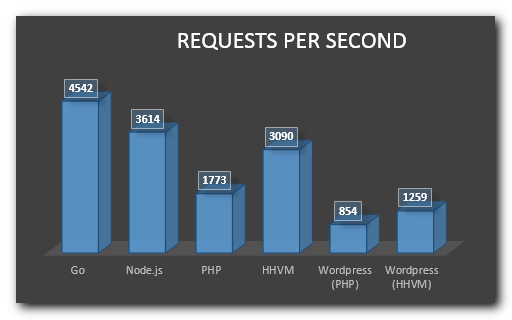From the large variety of languages for mobile, server and Web-development you can always find the right one that will be the most helpful for solving some specific task you come upon with. This article is a brief review of one of such languages called “GoLang”.
In case you don’t know what a GoLang is here is a brief info from Wikipedia:
“Go, also commonly referred to as golang, is a programming language developed at Google in 2007 by Robert Griesemer, Rob Pike, and Ken Thompson. It is a statically typed language with syntax loosely derived from that of C, adding garbage collection, type safety, some dynamic-typing capabilities, additional built-in types such as variable-length arrays & key-value maps, and a large standard library. The language was announced in November 2009 and is now used in some of Google’s production systems. Go’s “gc” compiler targets the Linux, OS X, FreeBSD, NetBSD, OpenBSD, Plan 9, DragonFly BSD, Solaris, and Windows operating systems and the i386, Amd64, ARM and IBM POWER processor architectures. A second compiler, gccgo, is a GCC frontend. Android support was added in version 1.4, which has since been ported to also run on iOS.”
First, let’s talk about our impressions after working with it.
Table of Contents
Pros of Golang Programming Language
Simple and user-friendly
If you have any developer experience working with other programming languages, the syntax of Go Lang will be easy and quick to grasp. Go code sometimes looks more readable and elegant even though the code itself is larger.

Defined style rules
Defined style rules allow easy maintenance of your code and other’s and it restricts any temptation to add your own style to the application. This can be a bit annoying in the beginning, but the payoff is significant, as soon as you start working on the application development with a big team.
Strict compilation system
If you set a variable and it is not in use or there are libraries that are not used in the code, you will get errors at the compilation stage. It can be annoying, but it also ensures that the code is free of clutter.
Multiple return values
Not the most useful thing at the development stage, but the availability to draw from the box sometimes is a positive factor for writing code.
Concurrency
Parallel calculations are easily and gracefully performed in Go. You’ll have no problems and no headache.
Deploy and native compilation
It is a walk in the park to get a server running because Go compiles the application into the native binary, i.e. your application has no dependencies with any jwm, frameworks or libraries. There is a single file that can be deployed to any server. Version 1.5 allows compilation of a binary file to any platform, making the process even easier.
Speed
Request processing speed compared to the servers with other languages differs depending on applications, but for Go it is a strong side.

Comparison of a simple application in the style “hello world”
Cons of Golang Programming Language
The simplicity of the language seems to be the most unusual and uncomfortable aspect of it. This may be a subjective opinion, but its simplicity is achieved by by eliminating many approaches and principles (for example DRY) that developers tend to get used to while working with other languages for many years. This factor could be crucial for some people, but based on our experience we can say that even though a code gets to be more cumbersome and complex compared to other languages, it is not difficult to deal with.
Go Lang has proved to be a better choice for the following tasks:
1. Web applications development and web servers. Originally Go was created as a tool for fast and easy writing of web and mobile applications by a large number of developers and to provide an easy support environment for the code. Its own features, go routines and channels, only enhance its advantages when writing code.
2. It proves to be a good pick as a stand-alone command-line application or script. This language has everything going for it: a single executed file without any dependencies (if they are not needed), higher processing speed, compared to other applications, ability to work with outside C libraries and even to process system calls.
3. A great alternative to parallel script writing in C/C++. It is easier to write and deploy those scripts in Go.
Yes, Go is a young new language and it is not perfect–it is not a “silver bullet” that will solves every problem. But, it has strong and attractive features that can’t be ignored. There is only one thing that is for sure, you can’t answer the question “Is that language for me?” without trying it first.
Master of Code designs, builds, and launches exceptional mobile, web, and conversational experiences.





